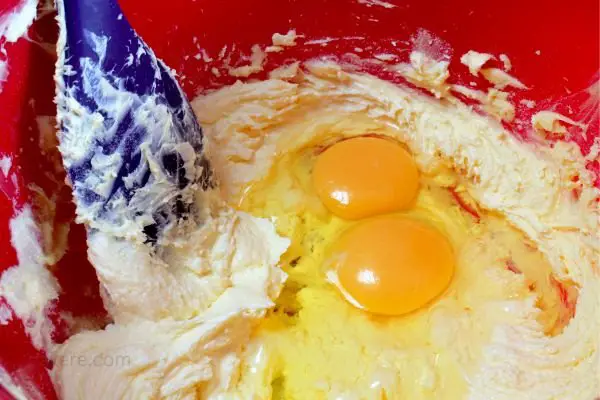When it comes to baking, eggs have long been a staple ingredient, offering structure, moisture, and flavor to a variety of baked goods. But what happens when you remove eggs from the equation?

The Role of Eggs in Baking
Understanding the Function of Eggs
Eggs play a crucial role in baking, serving as binders, leavening agents, and contributors to the overall texture and taste of the final product.
They provide moisture and richness, which results in a tender and soft cake.
Common Alternatives to Eggs
Before we dive into the taste of eggless cake batter, it’s important to know some common egg substitutes such as applesauce, mashed bananas, yogurt, buttermilk, and commercial egg replacers.
These alternatives aim to mimic the functions of eggs and maintain the integrity of the baked goods.
Exploring the Flavor Profile of Eggless Cake Batter
Lighter Taste
Cake batter without eggs tends to have a lighter taste. The absence of eggs reduces the richness and density of the batter, resulting in a more delicate flavor profile. This can be particularly appealing to those who prefer desserts that are not overly heavy.
Enhanced Flavor Additions
Since eggs contribute their own flavor, removing them opens up opportunities for other flavors to shine.
Ingredients like vanilla extract, almond extract, or citrus zest can be more pronounced in eggless batters, creating a unique and delightful taste experience.
Customizing the Taste
Without the dominant taste of eggs, bakers can experiment with different flavor variations.
From adding chocolate chips to incorporating crushed nuts or dried fruits, the absence of eggs allows for a more versatile canvas for creativity.
Texture and Consistency
Moisture Content
Eggless cake batter might have slightly less moisture compared to traditional batter. As a result, the texture could be a bit drier. However, this can be easily adjusted by incorporating moistening agents like yogurt or additional liquid.
Light and Airy
Eggless cakes are often known for their light and airy texture. The use of alternative leavening agents, such as baking powder and baking soda, helps the cake rise, resulting in a fluffy and tender crumb.
The Importance of Proper Substitutions
Achieving the Right Balance
While eggless baking offers exciting possibilities, it’s essential to strike the right balance between the chosen egg substitute and the other ingredients. Proper substitutions ensure the cake maintains its taste, texture, and structure.
FAQs
Absolutely! Eggless cake batter can be used for various cake types, from vanilla to chocolate to fruit-based cakes.
The best egg substitute depends on the recipe and desired outcome. Applesauce, yogurt, and mashed bananas are popular choices.
Yes, eggless cake may have a slightly different taste due to the absence of eggs, but it opens up opportunities for unique flavor combinations.
To enhance moisture in eggless cake batter, consider adding ingredients like yogurt, oil, or fruit purees.
Conclusion
In conclusion, cake batter without eggs can result in a lighter taste that allows other flavors to shine.
The absence of eggs encourages creativity and experimentation, enabling bakers to tailor the cake to their preferences.
While there might be slight changes in texture, proper substitutions and adjustments can yield a delicious and satisfying eggless cake.
